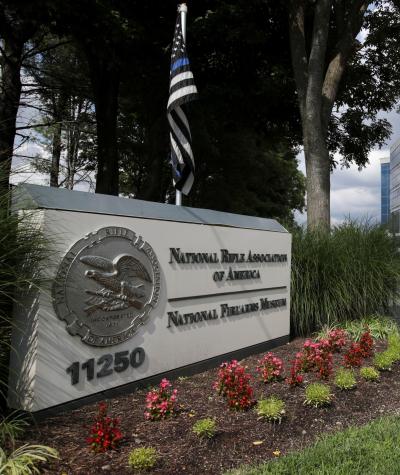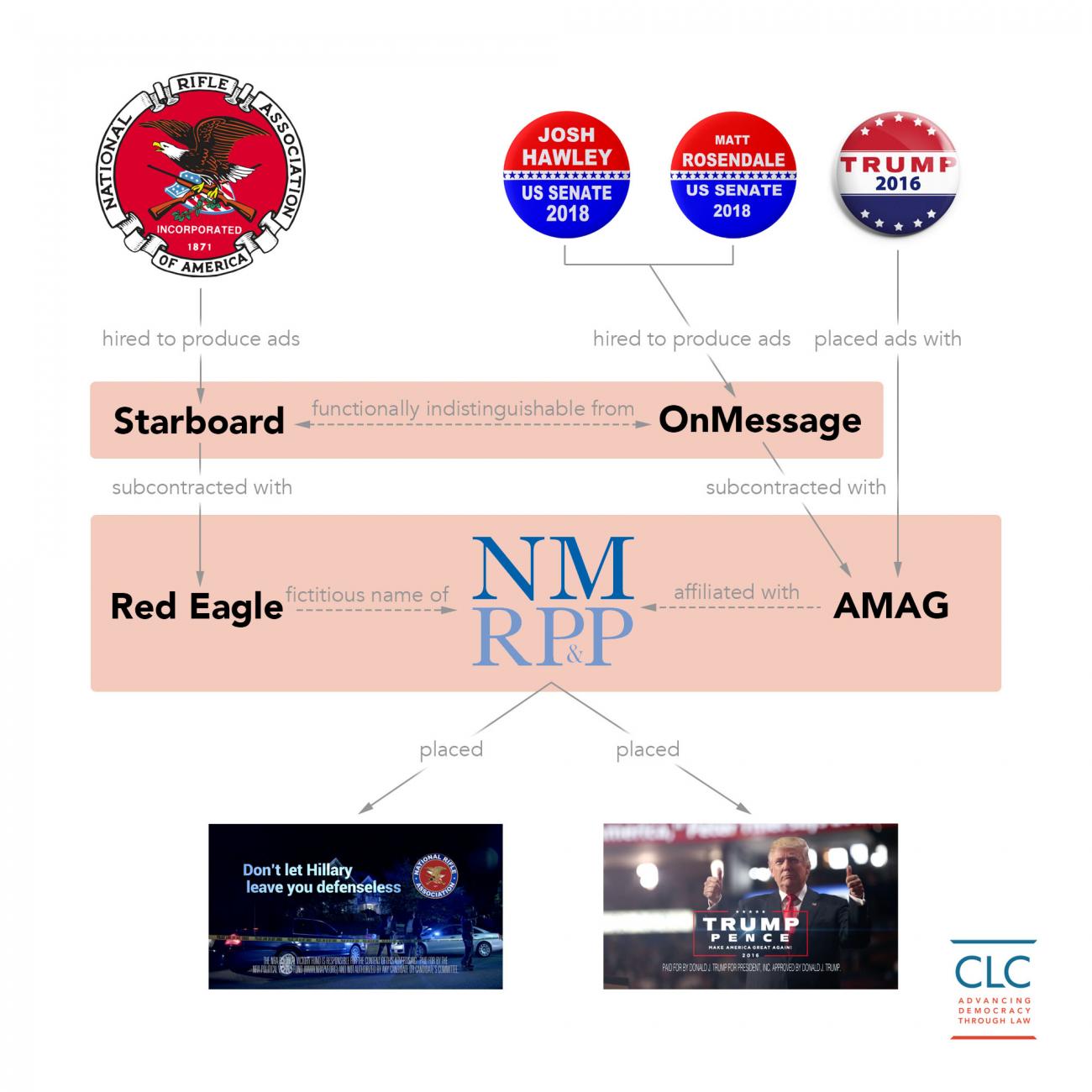Campaign Legal Center Action (CLCA), on behalf of the gun safety organization Giffords, filed suit against two National Rifle Association (NRA) affiliates, Josh Hawley for Senate and Matt Rosendale for Montana for violating federal campaign finance laws.
The suit details how the NRA illegally and surreptitiously contributed up to $35 million to the presidential campaign of Donald J. Trump and the Senate campaigns of Tom Cotton, Thom Tillis, Cory Gardner, Ron Johnson, Josh Hawley and Matt Rosendale across the 2014, 2016 and 2018 elections in violation of federal law.
Federal Campaign Finance Laws Restrict Coordinated Spending
The Federal Election Campaign Act (FECA) limits the amount that individuals and political action committees (PAC) may contribute to federal candidates and prohibits direct contributions from corporations entirely.
In the wake of Citizens United v. Federal Election Commission, however, there are no limits on how much an individual, PAC or corporation can spend independently in support of a campaign.
To ensure the distinction between contributions and independent spending is meaningful, FECA treats coordinated spending as a contribution rather than an independent expenditure. This means that coordinated expenditures are subject to the same limits and source prohibitions as direct cash contributions.
During the 2014, 2016 and 2018 elections, the NRA Institute for Legislative Action (NRA-ILA), a tax exempt 501(c)(4) corporation, and NRA Political Victory Fund (NRA-PVF) a PAC, spent millions of dollars on coordinated advertisements in support of Trump, Cotton, Tillis, Gardner, Johnson, Hawley and Rosendale.
By falsely claiming their advertising spending was independent, however, the NRA affiliates evaded FECA’s contribution limits, source prohibitions and disclosure requirements.
The Common Vendor Scheme
The NRA carried out this scheme by secretly contracting with the same ad vendors used by the candidates’ campaigns. The NRA and the candidates purchased advertisements through the political consultancy OnMessage/Starboard, which operates as “OnMessage” when it acts on behalf of candidates and as “Starboard” when it acts on behalf of the NRA.
Likewise, the NRA and the candidates placed campaign ads through a vendor named National Media, which purports to operate as “American Media and Advertising Group” (AMAG) when it acts on behalf of candidates and “Red Eagle” when it acts on behalf of the NRA.
The flowchart below demonstrates precisely how this scheme works:
Outside groups must avoid coordinating with candidates, even when they share a vendor, for example by putting in place robust firewalls to ensure work done for each client remains separate and isn’t informed by the other’s strategies and plans.
Here, there is no evidence such firewalls exist. Indeed, despite having different names, the OnMessage/National Media shells are functionally indistinguishable from each other.
Each shell corporation is controlled by the same people and shares the same corporate address. OnMessage accepted awards for NRA-backed advertisements that were purportedly developed by Starboard during the 2016 election.
And individual employees routinely bounce back and forth between corporate entities while performing work for both the NRA and the candidate campaigns, for example alternately identifying themselves as “AMAG” or “Red Eagle” employees, depending on whose money they used to make an ad buy.
Thus, not only did the NRA affiliates share a common vendor with the campaigns, but they necessarily had access to each candidate’s campaign and advertising strategies. They were therefore subject to FECA’s coordination rules. After all, it’s impossible for OnMessage/National Media’s management and staff to impose firewalls inside their own heads.
The Common Vendor Scheme Violates Federal Law
This common vendor scheme violates FECA in a number of ways.
First, as a corporation, NRA-ILA is prohibited from making contributions to candidates at all, meaning that the millions of dollars in contributions it made to candidates in the form of coordinated advertising spending were outright illegal.
Second, both entities made millions of dollars in contributions to the seven federal candidates identified in the complaints, well in excess of FECA’s contribution limit of $5,000 per candidate per cycle for PACs.
Third, both NRA-PVF and NRA-ILA committed reporting violations when they improperly reported their advertising expenses to the FEC as independent expenditures rather than contributions.
Finally, FECA also requires candidates to report coordinated expenditures as contributions in certain circumstances, including when the campaign directed, approved of or was involved in the development of the coordinated communication.
The evidence in Giffords’ complaint shows that both Matt Rosendale for Montana and Josh Hawley for Senate failed to report the NRA’s coordinated expenditures during their respective 2018 campaigns as contributions to the FEC, in violation of FECA.
What’s Next
Giffords’s complaint is before the U.S District Court for the District of Columbia. The NRA affiliates, the Hawley Campaign and the Rosendale Campaign will have an opportunity respond to the allegations, and this page will remain updated with future developments and court filings as the case proceeds.

